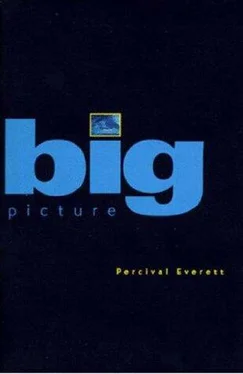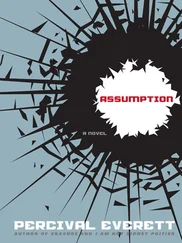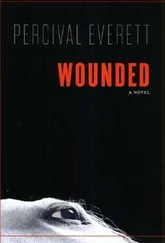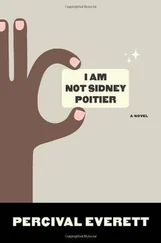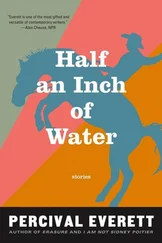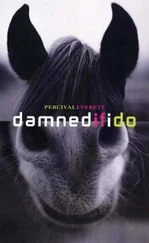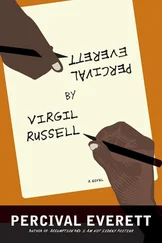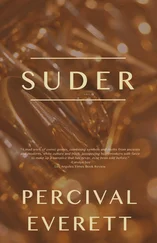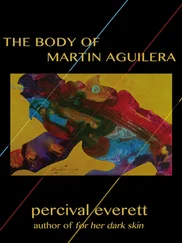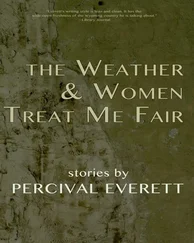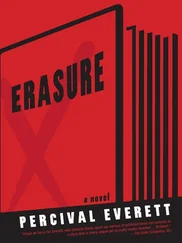“Well, they did it,” Lewis Fife said quickly. He was out of breath, panting.
“You didn’t walk over here, did you?” Hiram asked.
“Are you crazy? Of course not. I drove, but I took your steps two at a time,” Lewis Fife said.
“There’s only four steps, Lewis.”
“Give me a break, man. I weigh a ton. You try hauling this shit around.” He grabbed his stomach and showed it to Hiram. “Are you going to let me in?”
Hiram stepped aside and called back to Carolyn as the big man entered. “It’s Lewis.”
Carolyn came and stood in the doorway to the den. “Good evening, Lewis,” she said.
“Ma’am,” Lewis said and tipped a hat he wasn’t wearing. “Well, they’ve done it,” he said again.
“Done what?” Hiram asked.
“They killed that cat. Trevis Wilcox and his boy shot him up in Moss Canyon and just now dragged him down. They’re down in the village at the grocery-store parking lot. I thought you ought to see it.”
“Why?”
“Christ, man, you’re the vet around here. Not that you can help the beast now, but take a look at it and tell us if you think it’s the right cat.”
“The right cat? I never saw it.”
Lewis Fife bit his lip and said slowly, “Well, the Newton kid said the cat he saw was a lot bigger and, you know, when you’re scared everything looks bigger, but still.”
“Okay, I’ll come down.” Hiram turned to Carolyn. “Do you want to come with me?”
“I don’t need to see a dead lion. I don’t think you need to see it either.”
“Probably not, but I’m going anyway.” Hiram looked at Carolyn’s face. She disapproved, but he could see that she was not up to an argument.
“Please don’t get all upset.”
“I won’t.”
“I’ll take care of him,” Lewis Fife said.
• • •
Hiram and his father searched all day, went home, and then returned to the woods the following morning. Hiram watched his father’s face as they rode, his chin and cheeks darkened by a thick stubble. He didn’t much like his father, not because he was a bad man, not because he was mean, but because he never seemed to want more for himself, never opened books, and seemed afraid when Hiram did.
“So when we find him, Hiram, I’m going to let you have him,” his father said.
“I don’t want him, Dad.” Hiram sucked in a deep breath. “You know, Dad, there’s probably not ten wolves left in these parts. We shouldn’t be killing them.”
“You’re gonna shoot him, all right. It’ll be kind of a rite of passage for you.”
Hiram didn’t say anything, but a chill ran through him and he felt like crying.
From up high they could look down to the beaver pond. There were no animals around and Hiram got a bad feeling that the wolf was near. They rode down the slope slowly. Hiram’s father carefully pulled his rifle from its scabbard.
And there it was. The wolf was trotting along the near side of the pond, moving upstream. His coat was dark gray and he was carrying his bushy tail high. It was a big wolf. Hiram guessed that the animal weighed over a hundred pounds. It was beautiful, moving effortlessly. He loved the wolf. And when he looked at the smile on his father’s face he was filled with hate. He was embarrassed by the hatred, afraid of it, sickened by it, feeling lost because of it.
“Come on, boy,” Hiram’s father said.
Hiram followed reluctantly. They rode down across the meadow and past the pond and then circled wide away from the creek and back to it. The wolf was standing in a thicket, just thirty yards away. Hiram could see his eyes, the rounded tops of his ears.
“He’s all yours, boy,” Hiram’s father said.
“I can’t do it,” Hiram said.
“Shoot him,” the man commanded. “Shoot him or you ain’t no son of mine.”
Hiram looked at his father’s unyielding eyes.
“Shoot him.”
Hiram raised the Weatherby and lined up a shot. The wolf didn’t move; his eyes were as unyielding as his father’s. He squeezed off the round and watched as the startled animal had only enough time to change the expression in his eyes. The wolf looked at Hiram and asked why, then fell over dead as the bullet caught him in the chest with a dull thump. A shockingly small amount of red showed through the fur.
Hiram turned to his still-smiling father and said, “I hate you.”
“Fine shooting.”
“You didn’t hear me,” Hiram said. “I hate you.” He stared at his father until the man looked away. Hiram turned his horse and stepped off in the direction of the pond.
“You had to do it, Hiram. That wolf was threatening our welfare, your family,” the man called after. Then, more to himself, he said, “He was killing our stock. He had to be done away with.”
Hiram rode home alone, feeling scared of what his father would do when he arrived, feeling scared by what the lost spirit of the wolf was going to do to him. Tears began to slide down his face and he wished that his father could see them.
As he rode down the steep ridge above his family’s home Hiram saw them in the pasture. Six dogs were chasing a small ewe, sliding on the wet grass as she made her sharp turns. Hiram was filled with such anger that he couldn’t breathe, his hands mindlessly raised the rifle, and he found himself drawing a bead on one dog and then another. He fired and missed badly, but the dogs went running away. He looked up the ridge and saw his father staring down at the dogs, staring down at him. Hiram gave his horse a kick and trotted home.
He didn’t speak to his mother as he stormed into the house and he felt bad because he could tell he was frightening his younger sister, sitting there at the bottom of the stairs, stroking the border collie. He marched up to his room and slammed the door. He paced from the window to the door, his hands closing and opening, closing and opening, and all he could see was the face of the wolf, indifferent and unsuspecting, the amber eyes boring into him. He wanted to scream. He heard his father’s horse outside and he looked through the window to see him tying up at the post.
“I hate you!” Hiram shouted, but his father didn’t look up. “I told you it was dogs! I told you!” Still his father did not raise his eyes to the second floor, but walked onto the porch and into the house.
Hiram could hear his mother asking what had happened as he threw open his bedroom door and stepped to the top of the stairs. “ He’s what happened!” Hiram said. “He made me shoot that wolf.”
“That’s enough, Hiram,” his father said.
“No, it’s not enough. You made me kill that beautiful animal because you’re too stupid to listen to anybody.”
Hiram’s father started toward him, up the stairs. It might have been the perspective, but Hiram realized that he was larger than his father. He looked down at the man and moved to meet him on the stairs.
“Hiram,” his mother complained.
His sister was crying and that was the only sound which seemed to filter through his rage.
“I said ‘enough,’” his father said.
“Bastard.”
Hiram saw the rage in his father’s eyes and ducked his swinging fist, heard his mother’s scream. Hiram grabbed the man and felt how weak he was. He now understood that his father had been profoundly affected by the death of the animal, and felt his father’s chest heaving with sobs. Hiram fell to the floor holding his father, both crying, neither letting go.
• • •
It was true that Lewis Fife didn’t look comfortable seated in the driver’s seat of an automobile. His stomach pressed against the steering wheel, which he held with both of his fat paws, the seat belt idle beside him since it would not accommodate his girth. “Been driving for thirty-five years and not one accident,” Lewis Fife would say, taking a steep curve on two wheels. Hiram sat beside him in the monstrous mid-seventies Lincoln Town Car, squeezing his nails into the armrest, believing, as did everyone else, that Lewis Fife was long overdue for a vehicular mishap. But that night the fat man didn’t take any curves on two wheels, didn’t drive well above the limit, didn’t crowd the center line, didn’t fumble with a bag of chips set on his shelf of a stomach. Lewis drove steady and slow from Hiram’s house all the way to the village with his eyes stapled to the highway; the silence about him suggested reverence. Hiram was taken over by a similar quiet mood. All he could imagine was the large, majestic, dead face of the lion.
Читать дальше
